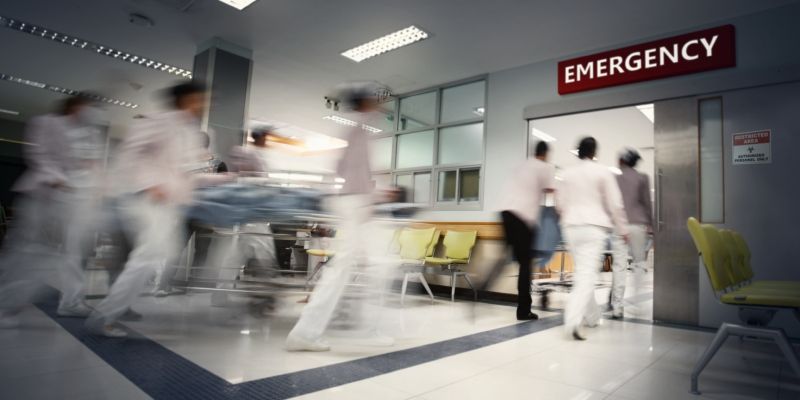
Medical students suffering with mental health difficulties and burnout saw significant improvements after taking part in a bespoke online coaching programme.
The 115 students, from medical schools across the UK, completed the Reboot coaching programme as part of a study to assess whether it would improve their psychological resilience, depression, burnout and confidence in their ability to cope with stressful work-related events.
Before, during and after the coaching, the students were assessed in each of these areas. The study, published in the Scottish Medical Journal, found that taking part in Reboot was linked with significant improvements in all areas, with fewer students experiencing depression symptoms after they had completed the coaching.
Delivering the training is cost-effective at around £200 per participant.
Reboot helps support medical students develop skills and solutions for the challenges they face and will continue to face as qualified doctors.
Reboot was originally designed by Dr Judith Johnson and her collaborators in the University of Leeds School of Psychology and the Bradford Institute for Health Research to prepare healthcare workers for, and aid recovery after, stressful clinical events.
Dr Johnson adapted the programme to fit the needs of medical students. Globally, one in two report high burnout, while one in three experience elevated depression.
She said: “Until now, most evaluations of supportive interventions for medical students have focused on generic interventions such as mindfulness, stress management training and yoga. These lack relevance for medical students and professionals and there is no clear evidence for such interventions improving depression or burnout among this group.
“Poor mental health in medical students is a significant problem globally and there is evidence that a significant proportion of medical students intend to leave the profession as soon as they qualify.
“There is also a workforce crisis, with projections indicating a global shortage of around 10 million healthcare professionals by 2030. Anything which can help retain healthcare professionals in their professions is sorely needed.
“Reboot helps support medical students with work-related stressors, normalising the anxiety which is inherent to training, providing peer-support and also helping medical students develop skills and solutions for the challenges they face and will continue to face as qualified doctors.”
Co-principal investigator Dr Will Lea, SAS Doctor in Acute Medicine and Honorary Senior Lecturer at Hull York Medical School, said: “Considering the stressful situations that medical students and doctors are inevitably going to experience during their training and careers, it is quite shocking that there is a lack of preparation for this during undergraduate education. No doubt the lack of evidenced-based approaches is a major reason for this.
“As a doctor and medical educator, I feel passionate about the importance of this work and hopeful that as we develop evidenced-based approaches to prepare future doctors we will have a lasting impact on wellbeing, job satisfaction and ultimately contribute to overcoming the current international workforce crisis.”
Significant improvements
Medical students participated in two two-hour group online workshops and a one-to-one coaching call with a Reboot-trained licensed psychological therapist. Participants were assessed for resilience, burnout, depression, and confidence before the training; after the workshops; after the coaching call and at a four-month follow-up appointment.
Resilience scores increased significantly from the start of the programme to the four-month follow up. Two thirds of students showed low resilience at the start of the programme, but by the four-month follow up, this had dropped to just over a third. More than half could be considered as having ‘normal’ resilience.
Confidence scores increased significantly after the workshops and did not increase, suggesting they remained stable by the four-month follow up.
Burnout scores had reduced significantly after the workshops and remained stable at the four-month follow up.
And a third of students had no depression symptoms at the start of the intervention, but by the end, this had risen to more than half.
Further research is now required to test the coaching programme against a control intervention. This will firmly establish that the results are due to taking part in Reboot.
Cost savings
Dr Johnson believes the coaching should be incorporated into the medical degree.
She said: “It has been suggested that these kinds of interventions are too expensive, but if they are effective, as Reboot seems to be, the cost-savings in the long term could be huge. Every doctor costs a fortune to train. The cost of Reboot on top of this is tiny. It works out as about £200/head, which is less than the cost of a single agency shift to cover a doctor off sick for one day with stress.”
The study was funded by the BMA Foundation for Medical Research. The Chair of Trustees, Professor Philip Banfield, said: “It’s incredibly encouraging to see the marked improvements that the Reboot coaching programme has had for medical students who are struggling with burnout.
“We know universities’ support structures can vary so much that medical students across the UK have vastly different experiences. It is a privilege to be able to help support important projects such as this – maintaining the wellbeing of medical students should be prioritised by all involved from the start.”
Further information
“Reboot coaching programme: A mixed-methods evaluation assessing resilience, confidence, burnout, and depression in medical students” was published in Scottish Medical Journal on 5 December 2023.
Email the University of Leeds press office via pressoffice@leeds.ac.uk with media enquiries.